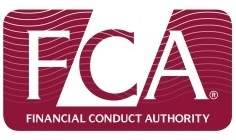
The Financial Conduct Authority (FCA) has launched what it has described as its ‘future mission’, as Andrew Bailey, chief executive officer of the FCA, admitted greater transparency of the regulator would lead to it becoming more effective.
Speaking at the launch of the Mission, Bailey said the sheer breadth of the FCA’s objectives and scopes meant it was inevitable that it would have to make choices where its resources and attention were focussed.
Greater transparency would also allow it to be held accountable for these choices.
The mission has been opened to consultation, and the FCA is seeking engagement from across the breadth of its stakeholders.
According to Bailey, “The mission will only be a success if our stakeholders engage with us through the consultation process. Out of it, we hope that we can set out a clear path ahead for financial conduct regulation in the UK.”
The mission is broken into a number of sections, including;
How well do you really know your competitors?
Access the most comprehensive Company Profiles on the market, powered by GlobalData. Save hours of research. Gain competitive edge.

Thank you!
Your download email will arrive shortly
Not ready to buy yet? Download a free sample
We are confident about the unique quality of our Company Profiles. However, we want you to make the most beneficial decision for your business, so we offer a free sample that you can download by submitting the below form
By GlobalData- How should the FCA balance the responsibilities of firms and consumers , given its remit of protecting consumers
- What role should the FCA take in redress schemes, particularly in dealing with activity outside of the FCA’s remit
- Questions around how the FCA could be clearer for firms, consumers and stakeholders on what it is doing and why
- Explaining the scope of the regulation, and the interaction between regulation and public policy, as well as providing clarity and seeking feedback on the FCA’s current approach to using its different regulatory powers and tools
- An explanation on the FCA’s approach to vulnerable customers
On this last point, Bailey said there two ways of interpreting how to regulate for this. The FCA could either look to protect all consumers roughly equally roughly all of the time, or it could have a greater duty to protect vulnerable customers.
“There are good reasons for that. But if you go down that road, then you’ve got to answer other questions: how do you define vulnerability, because it takes many forms, what does it mean, and how do you put it into effect,” he added.
In addition to these points, the FCA is looking to conduct a review of its handbook, which Bailey said currently stands at about 6ft2” when printed out on paper.
“I’ve always said if you leave handbooks to themselves, they only grow, and it’s sensible for a regulator to review them periodically. We think that’s a useful thing to do because bits of it have been around for quite a long time, it’s grown, and in the spirit of giving an interpretation of what we do, we think it’s sensible to look at it,” he said, explaining the review.
Despite this, Bailey was keen to point out the mission didn’t amount to a “repositioning” of the FCA. Instead, he said: “It’s about explaining what we do, and how we do it”, adding: “We’ve not written this in any sense to reposition the FCA. It’s much more about explaining what we do.”







